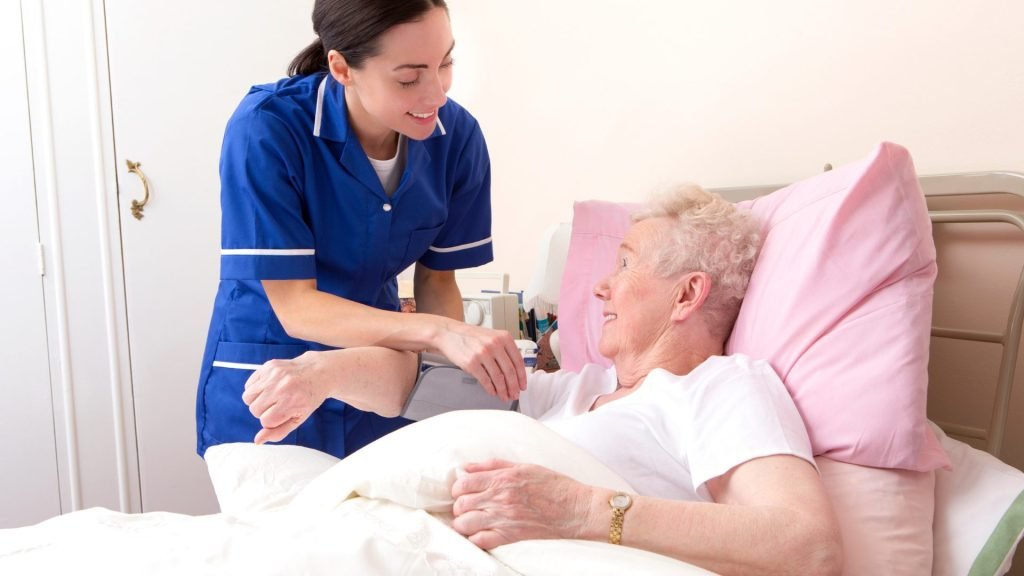
What are the mandatory courses for the UK healthcare industry?
In the social care industry, Mandatory training ensures that care providers have the necessary knowledge and skills to deliver safe, effective, and person-centered care. In this article, we will outline the mandatory training courses required for social care staff and highlight their importance.
A lot of our clients ask us if we have a list of the Mandatory courses for the Health and Social Care industry. Our answer is simple: there isn’t an official list of Mandatory courses for the healthcare industry in the UK. Each type of organisation will have a different list of courses that will become Mandatory for them. For example, Care Homes will have different requirements compared to Domiciliary Care Providers. Drilling these two categories further down, Residential Care Homes will have a different type of Service Users compared to a Nursing Home. Each CQC Registered Manager should consult with their Local Authorities that fund their Service User or with the CQC to what training they impose to consider that specific business compliant. The Registered Manager will then be able to compile a list of specific Mandatory courses for their organisation.
That being said, there is however a list of courses that tend to be on the list of each Care Provider registered with the CQC. In this article we will talk about those 10 Mandatory courses:
- Health and Safety
- Safeguarding
- Fire Safety
- Infection Control
- Manual Handling
- Food Safety
- Mental Capacity
- Dementia Awareness
- COSHH
- Data Protection

Mandatory Training Courses in Social Care
1. Health and Safety Training
Health and Safety training is a crucial element of mandatory training for social care staff. This course covers the basic principles of health and safety, risk assessment, and the importance of good communication in maintaining a safe working environment. The aim of this training is to ensure that staff understand how to identify and manage risks, including those associated with manual handling, hazardous substances, and infections.
2. Safeguarding Training
Safeguarding training is another essential course for social care staff. This training covers the legal and ethical obligations of care providers to protect vulnerable adults and children from abuse, neglect, and harm. It also provides practical guidance on how to recognize and report any safeguarding concerns. By completing this training, staff are equipped with the knowledge and skills needed to promote the welfare of the people they support.
3. Fire Safety Training
Fire safety training is mandatory for social care staff to help them understand the risks associated with fire and how to prevent fires from occurring. The course covers the principles of fire prevention, fire detection and warning systems, evacuation procedures, and fire extinguisher use. By completing this training, staff are better prepared to prevent and manage fire incidents, reducing the risk of injury or harm to themselves and others.
4. Infection Control Training
Infection control training is essential for social care staff to prevent the spread of infections and diseases. The course covers the basic principles of infection control, including hand hygiene, personal protective equipment, waste management, and the use of disinfectants. By completing this training, staff are better equipped to prevent and manage infectious outbreaks, ensuring the safety and wellbeing of the people they support.
5. Manual Handling Training
Manual handling training is mandatory for social care staff who may be required to move or handle people or objects as part of their role. The course covers the principles of safe manual handling, including risk assessment, correct lifting techniques, and the use of equipment to reduce the risk of injury. By completing this training, staff are better equipped to carry out their duties safely, reducing the risk of harm to themselves and the people they support.
6. Food Safety
Learners should expect to learn about potential food hazards, food safety regulations and standards, personal hygiene, cross-contamination, temperature control, cleaning and sanitation, and allergen management. They will complete an assessment to reinforce their understanding and learn how to apply their knowledge to maintain food safety in their workplace.
7. Mental Capacity
A Mental Capacity course aims to provide learners with an in-depth understanding of the Mental Capacity Act (MCA) and its practical applications. The course covers topics such as how to assess capacity, making decisions in the best interests of the individual, and the role of the Court of Protection. Learners can expect to gain valuable knowledge and skills in supporting individuals who lack capacity, ensuring that their rights are upheld and their needs are met.
8. Dementia Awareness
A Dementia Awareness course aims to provide learners with a comprehensive understanding of dementia and its impact on individuals and their families. The course covers topics such as the signs and symptoms of dementia, different types of dementia, communication strategies, and person-centred care. Learners can expect to gain valuable knowledge and skills in supporting individuals living with dementia and enhancing their quality of life.
9. COSHH
A COSHH course aims to provide learners with an understanding of the Control of Substances Hazardous to Health (COSHH) regulations and how to apply them in the workplace. The course covers topics such as identifying hazardous substances, assessing the risks they pose, and implementing control measures to protect employees and Service Users.
10. Data Protection
A Data Protection course aims to provide learners with an understanding of the principles of data protection and the General Data Protection Regulation (GDPR). The course covers topics such as data processing, data subject rights, and data breaches. Learners can expect to gain valuable knowledge and skills in managing personal data in compliance with the GDPR, ensuring the privacy and security of individuals’ data.

Notes
If as a care provider, you care for Service Users with special medical conditions, for example urinary catheters, tracheostomy, oxygen, diabetes etc., your staff will need to have that specialist training as well, to satisfy the CQC.
Nursing Agencies (or temporary healthcare workers)
They are safe to provide/undertake the above 10 online courses, plus:
– Face to face Manual Handling for care assistants/support workers
– Face to face Manual Handling and Basic Life Support/Resuscitation for Nurses
If your clients ask for specialist training for your staff then you will have to make arrangements.
Conclusion
There isn’t an official list of Mandatory Courses. There is however a list of courses that is common to all care providers. The above mentioned courses are the ones we recommend. Mandatory training courses play a crucial role in ensuring the safety, wellbeing, and quality of care services provided by social care staff. By completing these courses, staff are equipped with the knowledge and skills needed to provide safe, effective, and person-centered care. At ACSTRA Training, we are committed to providing high-quality training courses that meet the needs of your clients and support them in delivering outstanding care services.


